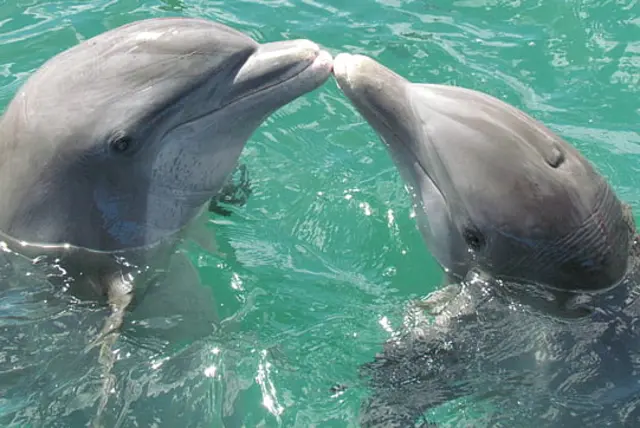
By: Alyssa Hong
When someone is talking to a baby or young animal, most people immediately know who or what they are talking to because of the distinctly high-pitched voice. Well, turns out dolphin mothers do the same. A study published on Monday, June 26, showed that dolphin moms will change the tone of their whistle when calling to their calf.
Like humans, the dolphin mother will make the tone of their voice more high pitched. Researchers documented the whistles of 19 different mother dolphins, from when they were accompanied by their offspring vs. when they were swimming alone or with other adult dolphins. A dolphins’ signature is an important signal—it is equal to calling out their own name.
“They use these whistles to keep track of each other. They’re periodically saying, ‘I’m here, I’m here’,” said study co-author Laela Sayigh, who works as a Woods Hole Oceanographic Institution marine biologist in Massachusetts.
When the mother dolphin is directing their calls to the calf, the tune of her whistle is more high-pitched and has a higher pitch range. “That was true for every one of the moms in the study, all 19 of them,” said biologist Peter Tyack, a study co-author from the University of St. Andrews in Scotland.
However, obtaining the data was not easy. For three decades, researchers put recording devices on the same mother dolphins repeatedly, including the years when the mother had a calf—which stayed with the mother for three years or longer—and when it had no offspring. (Fathers don’t exactly play a role in raising the baby).
“This is unprecedented, absolutely fantastic data,” said Mauricio Cantor, an Oregon State University marine biologist. “This study is the result of so much research effort.” It is still unclear why humans, or any other animal, uses baby talk, but it may be to help the offspring learn how to talk.










